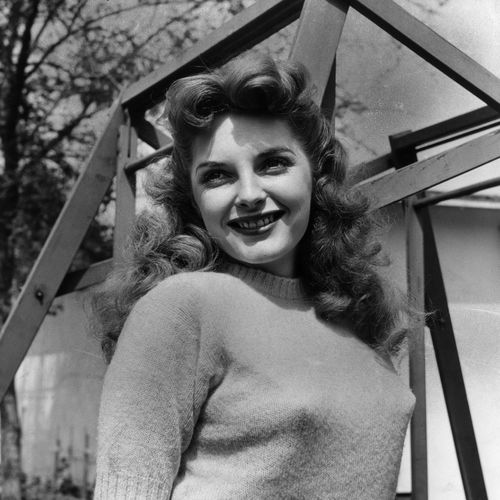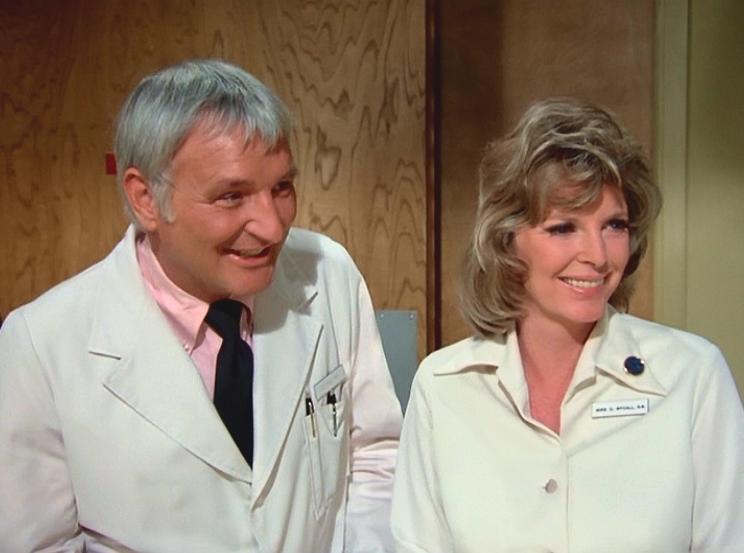“To compensate for Julie’s inability to project her voice above a whisper…(she) move(d) ever closer to the microphone, which accentuated the smoky, naturally breathy quality in her voice. The result…was a sound that enticed listeners to move closer to their speakers and suggested the illusion that Julie was singing only to them.”
“Go Slow: The Life of Julie London” by Michael Owen (2017)

I actually came to Julie London through her 1970’s television show Emergency! I’ve written before of my love for that show and how I rediscovered it at about the same time I was being introduced to Julie’s music. It’s not as an actress but as a sultry singer of smoky ballads that Julie is best remembered today. The book we’re looking at here does a good job reporting on all of her professional and personal endeavours.

It’s always a challenge researching someone with a common name. Try looking up “Michael Owen” and you get nothing but results about the English football player who spent time with Liverpool and the England national team. Doesn’t help that Footballer Owen is also an author, having written an autobiography. Our Michael Owen is a San Francisco Bay-area writer and researcher who is the archivist of the Ira and Leonore Gershwin Trusts. I had to dig to find that.

By some measures, Owen’s book on Julie is the perfect star biography. After what was for me a rocky start, the book picks up and flows nicely, providing the right amount of detail about various aspects of London’s life. Owen provides family info on a young Nancy Peck and her family as she grew up in Santa Rosa and then San Bernardino, California. The author provides background on Julie’s troubled marriage to Jack Webb and describes her recording her trademark “Cry Me a River” in a voice the sounded like a “hurt bird”. She purred “close to the mic” in a style that Owen says makes her “one of Bing’s children”. The recording was a “catharsis” for Julie as she was able to release emotions she had been bottling since her separation from Webb had become public.

Owen gives thorough info on Julie’s second husband, Bobby Troup, calling him her “champion” as he shepherds the recording of her albums on Liberty Records. What I enjoyed about the book was Owen’s detail on each record, starting with a discussion of her provocative album covers, providing even info on the photographers. For example Michael describes for those who have never seen it the cover of Julie’s 1960 album Around Midnight and reports on the photographer and the design firm that created the cover adding that Julie “understood the commercial value” of her covers.
I had read Ruy Castro’s book on bossa nova in which Castro talks of the influence of Julie’s records on the genre; not so much her sultry voice but her musical accompaniment. Julie’s bread and butter was the small group and through her career she used many legendary jazz guitarists, not the least of which was Barney Kessel. His work on Julie’s records inspired Brazilian’s like Roberto Menescal and Luiz Bonfá who, like other bossa pioneers, were being lead by Kessel and other American guitarists to abandon the traditional accordion and to pick up the guitar. Julie is Her Name is a pivotal album in bossa nova history due to Kessel’s work. How big was Barney on the West Coast when he started working with Julie? He was paid $250 a week – twice what Julie herself was paid!
I was happy to hear the story of Julie’s recording of one of my favourite albums of hers, Julie…at Home. Much enjoyable ink was spent describing that Julie seemed to sing her best in the laid-back atmosphere of her living room, surrounded by friends enjoying some lovely beverages. “Some” lovely beverages might be an understatement; one guest joked that, at Julie and Bobby’s parties, revellers would be more apt to end up sitting under the piano as opposed to on it. As Julie was most comfortable in her home with people she enjoyed, this record catches her at her most relaxed. By the way, this palatial home, so dear to the Troups, was at 16074 Royal Oak Road.

Owen even manages to make a connection between Julie’s records and her films. For example, with her character in Man of the West (1958, co-starring Gary Cooper and Jack Lord) “Julie was given the chance to express…the wistful, longing qualities of her recordings onto the big screen”. Owen’s fine research extends to Julie’s time in Hollywood and he’s even able to give good background on the sources of the stories she played in on the big screen. But the author is blunt and pulls no punches as he reports on Julie’s inability to create indelible images on-screen and this was reflected in the quality of the films she was approached to appear in. And movie producers hoping to cash in on Julie’s sexy persona on records were frustrated to find her a conservative person, unwilling or unhappy to appear in provocative roles.
Owen highlights a revival of sorts that Julie enjoyed in the mid-’60’s that saw an increase in the quality of her records and saw her having success on night club stages. Go Slow digs in to London’s personal life and her extreme shyness that became almost reclusiveness. Michael details Julie’s transition to television actress and her work on Emergency!, work that suited Julie down to the ground as she worked with her husband, Bobby, on a regular schedule with a regular crew on controlled sound stages.

As I’ve said, Go Slow may be the “perfect” artist biography. My definition of perfect anyways. It gives info on each LP, each live engagement, each film; all of Julie’s professional output. It is well-detailed and researched and gives us many nuggets like Julie’s attendance at a family BBQ in guitarist Bucky Pizzarelli’s back yard (can you imagine?), like Julie’s many unreleased tracks, her testifying before commissions investigating copyright infringement and the fact that Julie released 32 albums for Liberty Records; only Martin Denny released more for the label. Owen also reports on Julie and Bobby’s near bankruptcy before Emergency! became a “physical, emotional and financial lifeline”.
I really enjoyed this book, for its detail and for its brevity. And because it presents Julie honestly – warts and all – which is the responsibility of any serious biography.
** You can hear me review this book on Koop Kooper’s Cocktail Nation radio show as part of my monthly “Words With Wellsy” series **



Running a little behind schedule on my regular Soulride reads. Great and enlightening stuff here, as usual.
Thank you, my friend.